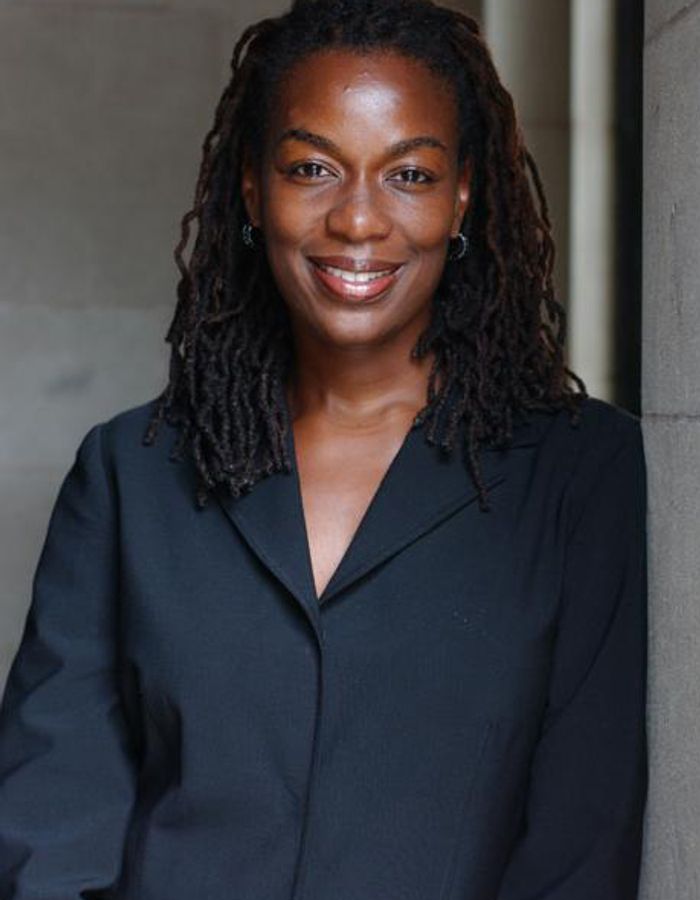Demystifying technology: How to get technology projects off the ground
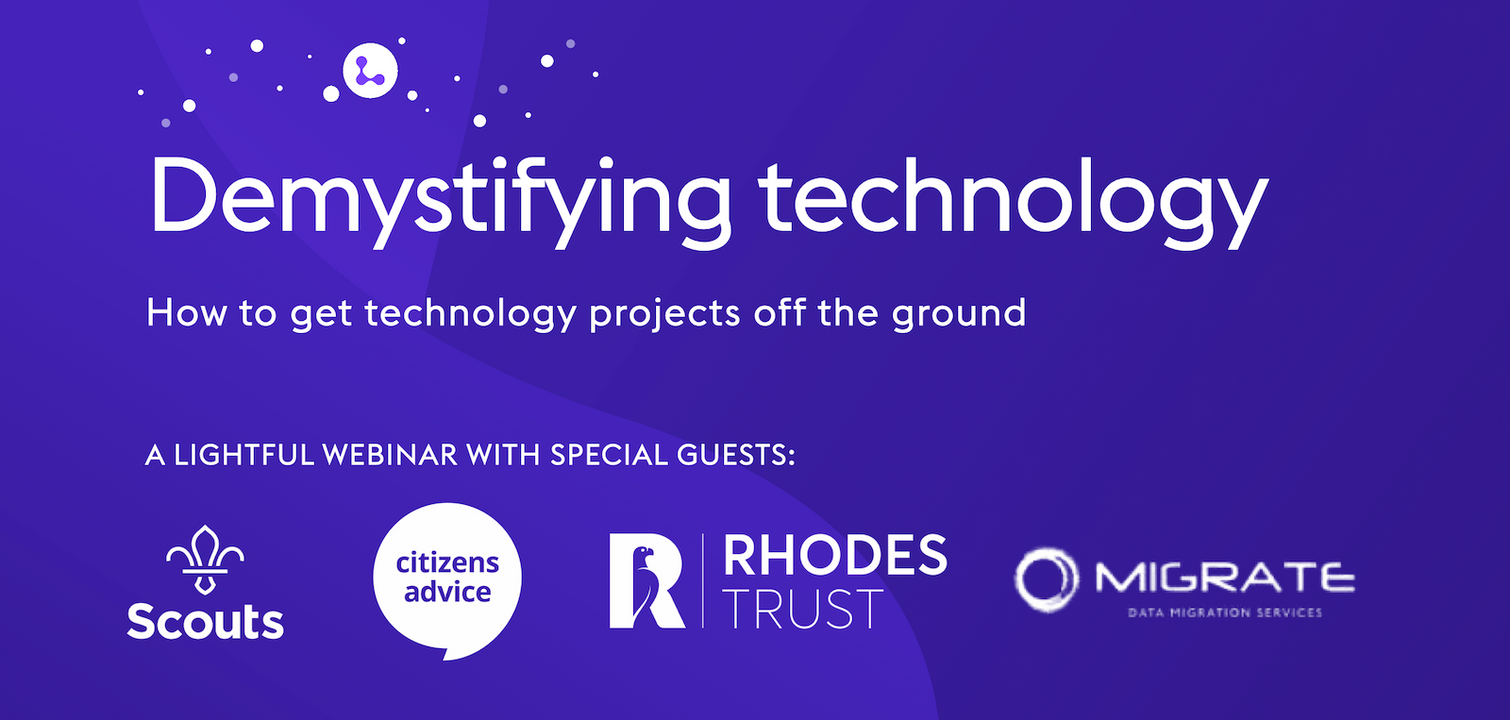
Last month we hosted a webinar with a very interesting panel sharing their tips and tricks to demystify technology, and how best to harness its power.
The session focused on answering key questions:
How do you navigate your choices? How do you decide where to start? How do you plan the journey? And how do you harness technology's value for your people, your organisation and your cause?
Our panel shared their experiences working in charities and nonprofits on technology projects - the successes they’ve had, and the pitfalls they’ve avoided. The panel consisted of:
- Benedict Pinches, Digital Transformation Project Lead at the Rhodes Trust
- Duncan Baldwin, Product Lead at Citizens Advice
- Oliver Mann, Alliances Manager, Migrate Data
- Susan Caesar, Managing Director of Solutions at Lightful
We’ve had great feedback from the attendees so we’re sharing the recording with everyone to check it at your own pace.
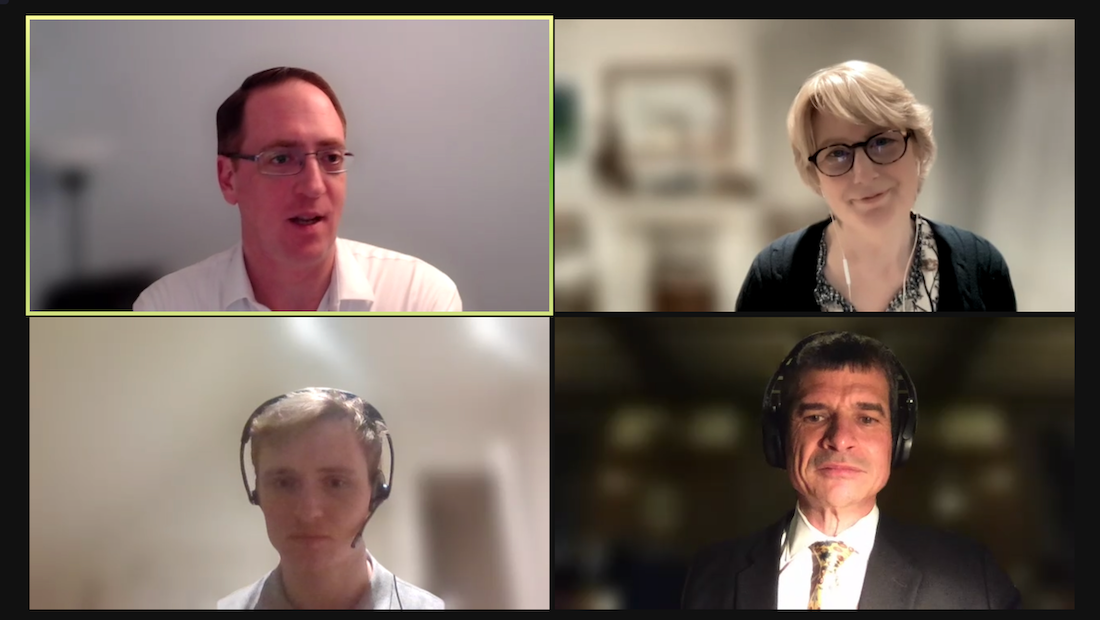
You can watch the webinar here.
Key takeaways
Here’s a brief summary of the top tips that our speakers shared.
Focus on people during digital transformation
Embarking on technology projects can be extremely intimidating. Benedict Pinches shared his learnings as a project management professional for the Rhodes Trust and their digital transformation:
- It’s important to focus on people first. They are the ones who should embrace digital change.
- Communicate a sense of purpose. Technology will no doubt support your purpose. You need to galvanise your team and people working on your project.
- Engage people from all levels in the organisation. Allow a level of autonomy across all levels to help everyone see technology as a stepping stone to new opportunities.
- Help people master technology. People may not feel that technology belongs to them. You need to give them the ability to master the technology you’re using.
Making a case for change
How do you make the case for change to internal stakeholders? Susan Caesar shares her top tips:
- Start with people. How is your organisation showing up in all experiences? Do a root cause analysis and look at the pain points. Explore the types of changes that you can make based on customer feedback.
- Don’t jump straight to the large technical change. Experiment with ideas you’re seeing and what you have today. Engage the wider enterprise to communicate that change is needed and bring them on the journey through little experimentations.
- Prioritisation. Look at the payoffs for changes and how to get started. Who’s already on board from the stakeholders and who needs more time? Listen to everyone’s concerns and focus on the shared end goal and journey
Key success factors for procuring technology and implementation partners
What do you need to know when procuring technology and implementation partners? Duncan Baldwin shares his top tips:
- Understand your real needs. Think in terms of user needs (and the needs of all of your users, not just those advocating for change) and don’t buy something unless you have a clear business case rooted in those user needs. Do this before you look at the market.
- Understand the process. How it will work and how long it will take, plus any restrictions. If you don’t know the details, find someone who can help you.
- Resource it properly. The cost of failed procurement will be greater than the cost of resourcing it properly (to ensure you don’t fail). Make sure you have the right people making decisions and those decisions are focused on user needs. Don’t let powerful stakeholders skew the outcome.
Focusing on successful stakeholder management
Change projects will inevitably impact a lot of people, how do you identify those people, and manage them through the journey? Each member of the panel shared their experiences and perspectives on how to work effectively with stakeholders.
Susan talked about the importance of knowing that there are different expectations among stakeholders. Some of them may be early advocates, while others may see change as a disruption. It’s important to spend time with everyone to understand their needs on a day-to-day basis.
Duncan also added that it’s helpful to map stakeholders to identify where people are and what to do with them and the different levels of involvement. It’s a good idea to give everyone a glimpse of what’s happening and how they need to be engaged.
Consider data before it’s too late
What are the things that can trip charities up in the early stages and how do you avoid them? According to Oliver Mann, there are four things that trip charities before and during a project:
- Data stakeholders. Identify who’s able to make decisions. It’s important to identify a singular source who knows how data is mapped and make business decisions
- Data sources. You need to know what’s being brought across. Data can be in lots of places creating data quality issues.
- Data quality. It’s important to have an honest assessment of the data and how you deal with data quality. It’s a good opportunity to understand what’s important and even reduce your data set to keep it up-to-date.
- Data scope. You need to identify data criteria while having everyone on the same page.
Most importantly, you need to know who is empowered to make the decisions to make the process easier.
What’s next
If you enjoyed this session, sign up to receive future updates for our sessions throughout 2022.
Latest articles
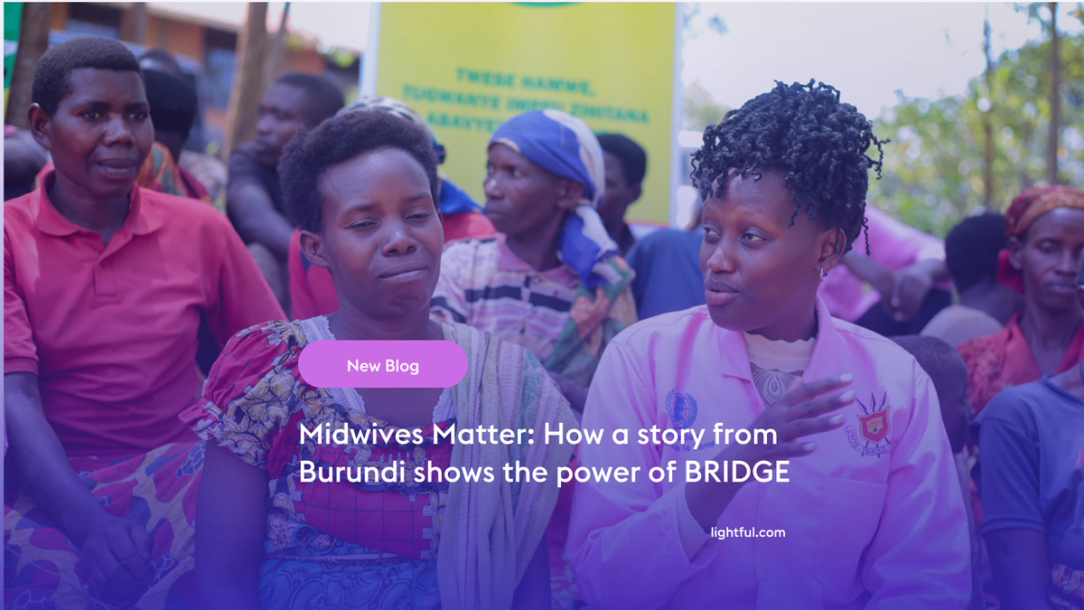
Over the past year, Lightful and the International Confederation of Midwives (ICM) have supported Midwives Associations across Africa, South Asia and the Eastern Mediterranean to build their digital confidence through our BRIDGE programme. These organisations were starting from very different places, but all shared the same goal: to use digital tools to strengthen their voice, raise their visibility and advocate for better outcomes for women and babies.
Related posts
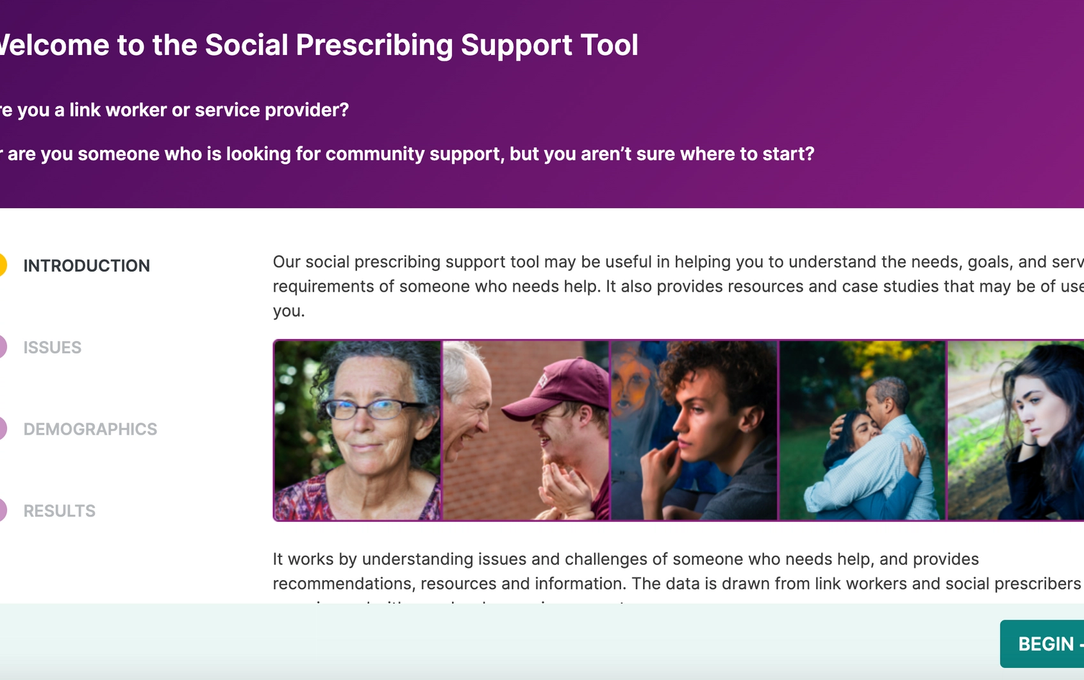
Find out more about the process of creating a persona-led social prescribing support tool to help organisations in the mental health and wellbeing sector.
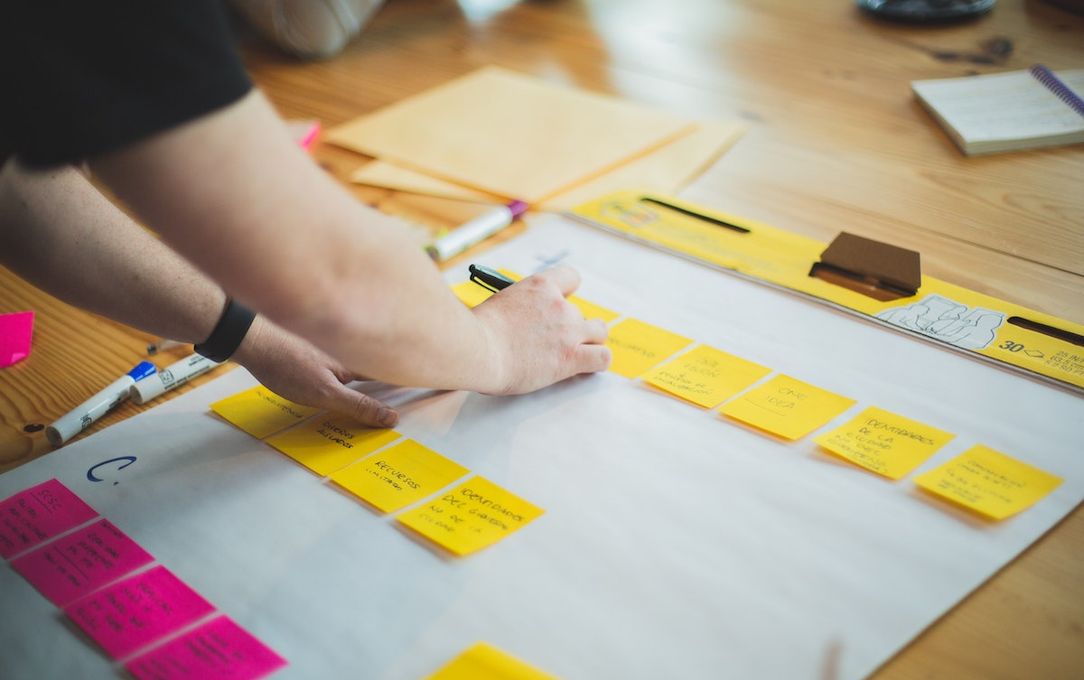
Nonprofits had to adjust during COVID-19 in the way they deliver services, communicate with their stakeholders and their own teams.
See who we help
Contact us
Want to learn more?
Email Jonathan and start a conversation






